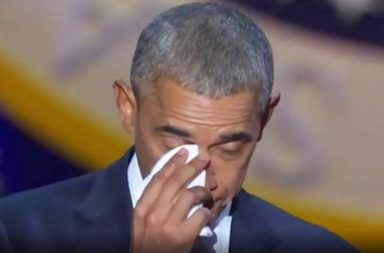On Saturday, an estimated 30,000 people assembled to protest TTIP, or the Transatlantic Trade and Investment Partnership, an upcoming trade deal between the United States and the EU.
President Obama seems unable to have a low key trip to Europe this week. He has spent the past few days in London, surrounded by Brexit comment controversy, and now he is headed to Germany, where protests have erupted.
President Obama is in Germany as a final push for a trade deal that the US wants signed by the end of the year.
The protesters were against the agreement, because they feel it will erode consumer protection and workers rights, which are far stronger in Germany than they are in the United States.
What is TTIP?
TTIP is a massive trade agreement between the United States and the European Union This agreement would reduce trade barriers between the two largest economies of the world, and it encompasses one-third of the global economy.
There are claims that the trade deal will add around 100 billion dollars to the US economy, and 125 billion dollars to the EU economy, however due to the secret nature of the agreement, these claims remain unsubstantiated to the general public.
The deal will cover financial services, the chemicals industry, textiles, cars, pharmaceuticals, information technology, and more. TTIP also has sections to protect intellectual property.
Agreements like these take years, even decades to negotiate. It involves dozens of countries and thousands of special interests. The idea of a transatlantic partnership began in the 1990s, but the negotiations for TTIP only began in 2013, and are expected to extend into 2020.
What is good about TTIP?
- TTIP will lower trade barriers and allow easier trade between the EU and the United States
- It will reduce the cost of goods for ordinary people.
- It will make it easier for European corporations and people to invest in the United States and vice-versa.
- It will allow regulatory differences. Right now, imports and exports can be limited because processes may not match required specifications. This will allow these specification issues to be overlooked. For example, cream-making machines are different in the EU and US, but TTIP will allow export and import of cream-based products like cakes.
Why are people protesting TTIP?
- First of all, the negotiations are being conducted in secret. The text of TTIP is CLASSIFIED. For a trade deal that will affect hundreds of millions of workers, the secrecy is something that is very worrying.
- Leaked segments of the agreement say that governments will be limited in passing financial laws that contradict the agreement, and that corporations could sue governments that infringe on the corporations rights under the agreement
- Europe has very strict regulations on Genetically Modified foods, and TTIP may reduce these regulations and weaken EU rules.
- It will loosen banking regulations. US banking regulations are tougher than those in the EU. TTIP may reduce the regulations in the US, and give power back to the banks. We all know how that worked out the first time.
- France has spoken out against the negotiations, with President Hollande saying, “France can always say no.” The agriculture lobby in France is strongly opposed to the deal.
- The Bertelsmann Foundation has published a study that shows support for TTIP in Germany has dropped from 55 percent to just 17 percent.
The major problem with TTIP is that we have no idea what exactly is in the agreement. Will it benefit the US and the EU? Probably. It will definitely benefit US and EU corporations. But the real question is whether it will provide real benefit to the people, ordinary citizens. Economist Dean Baker said that the average benefit to an ordinary household will be around $50 per year. This seems to be an extraordinary amount of work for so little a result for the ordinary citizen. Again, the problem is that we have no clue at all what is being said, and what this deal will actually mean. This is why people are protesting. They want to know what this means before it is too late.
Photo: Flickr: Mehr Demokratie





